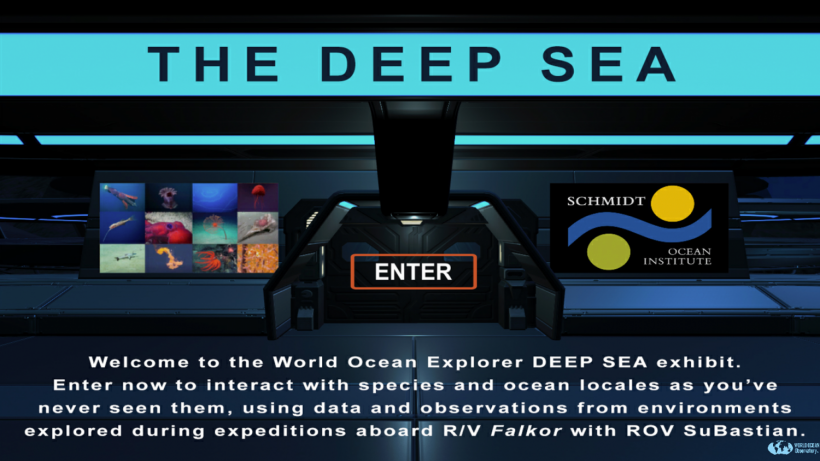The World Ocean Observatory (W2O) and Schmidt Ocean Institute (SOI) announced today the launch of World Ocean Explorer DEEP SEA exhibit, creating a first-of-its kind immersive virtual aquarium showcasing deep-sea discoveries. THE DEEP SEA is an educational, interactive online platform for ocean exploration and discovery, utilizing high-resolution video, models, and descriptive materials of newly discovered deep-sea ocean species and environments observed during science expeditions aboard research vessel Falkor with the underwater robot (ROV) SuBastian.

READ ALSO: Scientists Surprised to Catch Unexpected Fish, Squid Species in Central Arctic Ocean
DEEP SEA Exhibit was designed using Unity gaming software to bring three-dimensional ocean literacy and marine science education to a worldwide audience of educators, students and individuals interested in the full spectrum of biodiversity and related value provided by the ocean-the largest, most essential natural system on earth.
The virtual aquarium allows users to explore deep-sea ecosystems that cannot be observed in a traditional aquarium setting, such as hydrothermal vents, whale falls, and interactions with 3D models of newly discovered species.
"The DEEP SEA Exhibit is a new, transformational tool for understanding how the ocean works," said Peter Neill, Director of the World Ocean Observatory. "It does not have the physical scale of a real aquarium space, but it's as wide, deep and dynamic as the ocean itself and costs nothing to enter. It's a field trip without having to leave the classroom or one's home."
"The virtual aquarium," Neill continued, "is applicable to formal and informal education, and is based on principles of Ocean Literacy . We are grateful to the vision of Schmidt Ocean Institute for seeing the value in this resource and moving ahead with this first exhibit."
"The virtual world that has been created through this collaboration is a remarkable example of how we can use technology to bring science and exploration to the public," said Dr. Jyotika Virmani, executive director of Schmidt Ocean Institute. "I am excited for people to be able to investigate up-close rarely seen and fascinating creatures such as spike fish and cusk eels. By providing this platform, we can further the understanding of our ocean and trigger the imagination of future marine scientists."
Future modules, in development, will contain new displays and specific educational resources related to themes such as fresh water and watershed, the polar zones, coral reefs, coastal resources, maritime technology, and cultural traditions. We envision the site as a central place for access to many virtual exhibits from one central lobby.
RELATED ARTICLE: The Schmidt Family Foundation Gives Two Grants for Climate Change Research














